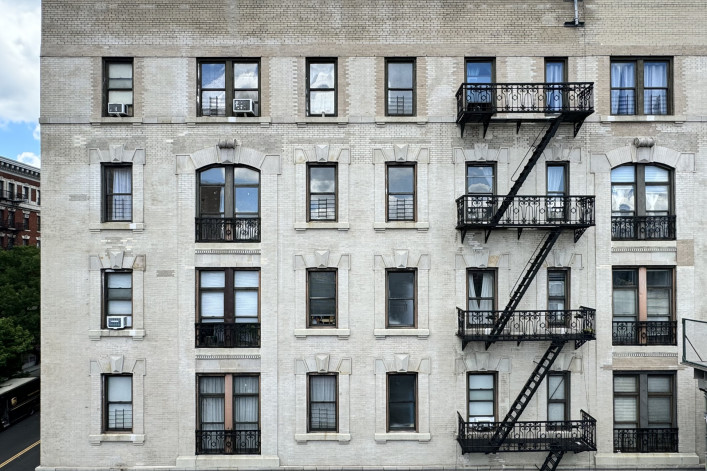The number one reason why NYC renters break a lease may surprise you
- Most NYC renters break their leases to move for a new gig, according to listing platform Leasebreak
- The number of Leasebreak users leaving to buy a place has dropped significantly since 2014

NYC renters break leases early for a variety of reasons—to move in with a partner, to buy a home, to snag a bigger place—but most still ditch to relocate for a new job.
iStock
Most New York City renters still break their leases to relocate for a new job, even with the surge in hybrid work since the pandemic, according to data from the apartment listing platform Leasebreak.
Relocating for a new gig has long been the number one reason New Yorkers break their leases early, said Phil Horigan, Leasebreak’s founder. Landing your dream job—or just stable employment—gives renters both the motivation and the means to move, Horigan said.
“If someone is breaking their lease due to a job relocation, one: they’re motivated, and two: the company will often cover the costs—which is huge,” Horigan said.
But the share of New Yorkers breaking their lease to find digs closer to their new employer has dropped in the past 10 years. Roughly 36 percent of Leasebreak’s users said they planned to break their lease to move for a new gig between Jan. 1st and Aug. 17th of this year, down from 42 percent who said they needed to relocate within the same period a decade ago.
Read on to learn more about the top reasons why New Yorkers broke their leases this year.
Fewer job relocations post-pandemic
The share of NYC renters who said they planned to break their lease to relocate for a new job declined sharply in 2020, when the pandemic forced many renters to work remotely from their cramped apartments.
In 2019, roughly 45 percent of Leasebreak users said they were breaking their lease to relocate for a new gig. But by 2020, that share dropped to 33 percent, and it has stayed below 40 percent for each calendar year since, according to Leasebreak’s data.
Smaller share of buyers since 2014
Meanwhile, the proportion of Leasebreak’s users who are transitioning from renting to buying has declined significantly since 2014, Horigan said.
Only 8 percent of New Yorkers said they planned to break their lease so they could purchase a home between Jan. 1st and Aug. 17th, compared with almost 20 percent in the same period in 2014. That’s likely due to a slowdown in NYC’s rental market, Horigan said.
“There’s no question that the reason why there’s fewer people breaking their leases due to purchasing a home is because there are fewer people purchasing a home to begin with,” Horigan said.
High mortgage rates have stymied sales in Manhattan and kept inventory low, as owners with low-interest loans stayed put instead of selling. But there are signs that the tide is changing: co-op and condo deals increased for the first time in two years in the second quarter of 2024, and brokers predict a busy fall sales season as the Federal Reserve is expected to cut interest rates in September.
New Yorkers moving in together and breaking up
New Yorkers can rest easy that breakups haven’t risen, at least according to Leasebreak’s data. NYC renters moved in together and broke up at similar rates in 2024 as they did in 2014.
The share of renters who relocated due to medical reasons, to accommodate their growing family, or because they lost their job was also roughly consistent from 2014 to 2024, according to Leasebreak.





























